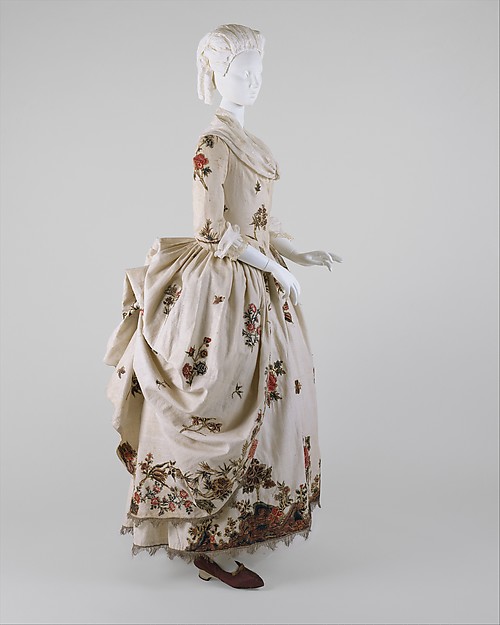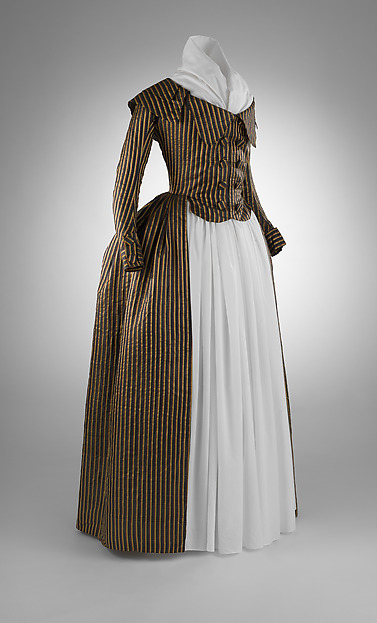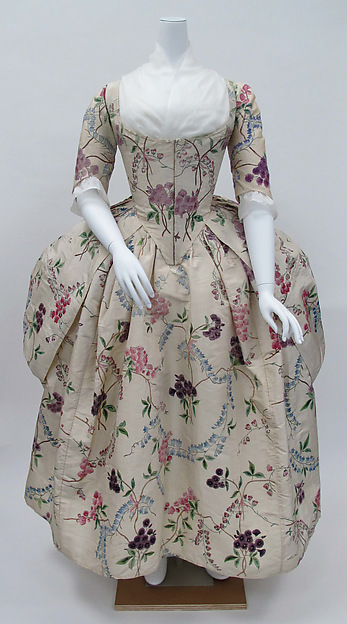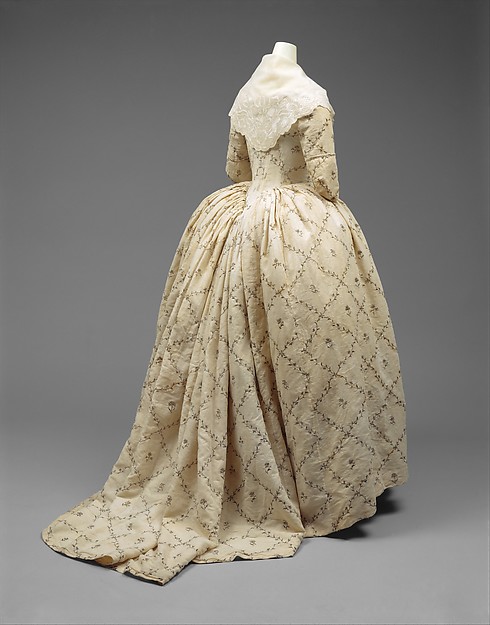Lady Reading the Letters of Heloise and Abelard | c. 1780 | Auguste Bernard d'Agesci
Owned by the Art Institute of Chicago
My favorite part about posting this Books in Art series is our conversation on Instagram about what we think the subject's facial expressions mean. I'm guessing this one will get some great comments, join the conversation here.
#FashionHistorybyDrHasty
Left: Robe à la Polonaise; Date: ca. 1780; Culture: British; Medium: linen
Left Middle: Redingote; Date: ca. 1787; Culture: probably French; Medium: silk
Right Middle: Robe à la Polonaise; Date: ca. 1780; Culture: French; Medium: silk
Right: Robe à l'Anglaise; Date: 1784–87; Culture: French; Medium: cotton, metal, silk
For most of the 18th century, proper young women were discouraged from reading novels. It was believed that women could not differentiate between what was real and what was fiction. My favorite thing about reading a novel is that I can get lost in the story and lose track of time, this was another great concern for people in the 18th century. This phenomenon was described as "reading addiction...reading rage, reading fever, reading mania or reading lust." There was a great article published by The New York Times back in 2014 titled "When Novels Were Bad For You" that compares reading novels in the 18th century to reading content on the internet today. If you have time, I think it is a great read!
This painting by Auguste Bernard d'Agesci is of a young woman reading the love letters of Heloise (a female student) and Abelard (a French priest) which were posthumously published, first in Latin in 1616 and then translated to French in 1693 when they really began gaining popularity. The original letters do not exist so there is some debate over their authenticity. However, the story goes that both Heloise and Abelard were prominent intellectuals of their time. Nineteen-year-old Heloise was studying philosophy under Abelard, who was 18 years her senior when they fell in love and began an affair. They had a child, Astrolabe, but their affair was soon discovered and Abelard was castrated and Heloise entered a convent. (Okay, this is the quick and dirty version of the story...you can read it if you want the juicy details!)
This post contains affiliate links, which means I receive compensation if you make a purchase using this link. Thank you for supporting this blog and the books I recommend!










